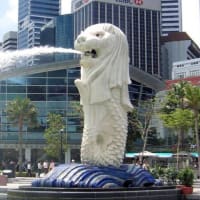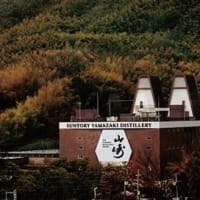
Perhaps as a result, Mr. Abe spent much of the campaign promoting his economic accomplishments, which have included a rally in Japan’s stock market and, with the drop in the value of the yen, a reprieve for the staggering electronics sector and other exporters. Analysts say the main lesson of Mr. Abe’s disastrous term as prime minister six years ago — when he was the first in a series of short-lived leaders — was that he cannot push too hard a nationalistic agenda while ignoring the economy.
At that time, voters soured on him as he failed to address pocketbook issues and focused his attention on right-wing issues like revising school curriculum to end the teaching of what he and his core nationalist supporters characterized as a masochistic view of history that paid too much attention to Japan’s wartime atrocities. He resigned in disgrace after just one year. This time, Mr. Abe has maintained an uncharacteristically moderate tone since becoming prime minister in December and has emphasized his economic program.
上に述べたような憲法改正を巡る有権者国民の微妙な心情をあるいは勘案した結果によるものか、安倍首相は選挙運動の多くを安倍政権の経済政策の成果を強調することに費やした。而して、安倍政権の経済政策の成果とは、例えば、日本の株式市場に活気を取り戻したこと、ならびに、円安に誘導したことによって、それまで青息吐息状態でふらついていた電子工業部門を始め輸出を収益の柱とする業界に一息つかせたことである。大方の識者は--ここ数年続いた短命政権の最初のものでもあった--6年前の第一次安倍内閣の悲惨から安倍首相が得たものは、経済面の施策を無視・軽視しているようでは、民族主義的な政策課題もそうそう強く押し進めることなどできはしないという教訓ではなかったかと見ている。
当時、有権者は、安倍首相が、右翼的な施策の遂行にかまけて経済関連の諸課題(pocketbook issues)への取り組みを怠ったことを厳しく咎めた。ちなみに、右翼的な施策とは、例えば、日本の戦争中の残虐行為を過度に重要視する、安倍首相やその支持者の中心をなす民族主義的な人々からは自虐史観と看做されている歴史認識を学校現場から排除すべく学校の教程を改正するといったものだ。而して、丸1年で安倍首相は無様に退陣。けれども、今回の安倍首相は、昨年12月の再登板以来、安倍晋三氏らしくもない控え目なスタイルで安倍内閣の経済政策に専心し続けている。
On Saturday in front of a busy Tokyo train station, Mr. Abe evoked Japan’s economic heyday in the 1970s and 1980s. “It’s up to us whether we want to show that ambition again or not,” said Mr. Abe, who punched the air as he stood atop a truck before a cheering crowd. “I say, let’s go for it one more time!”
In one of his few mentions of constitutional reform during the campaign, Mr. Abe sought to allay concerns about his intentions by suggesting that he wanted to retain the provision that renounces war as “a means of settling international disputes.” He also said having a more normal military was necessary if Japan wanted to play a larger role in international affairs, and to act as a full-fledged ally of the United States, its postwar protector.
土曜日【2013年7月20日】、夥しい乗降客で賑わう東京のとある駅の駅頭で安倍首相は聴衆に1970年代と1980年代の日本経済の全盛期のことを思い起こさせていた。「我々がもう一度あのような隆盛と活気を再現したいかどうか、それは我々次第なのです」「私は皆様にこう言いたい、もう一度やってやろうじゃないか、と」。安倍自民党を支持激励する聴衆を前にして、トラックの頂上に立った安倍首相は中空を拳で突き上げながらそう語りかけた。
今般の選挙運動において安倍首相は憲法改正についてはほとんど語らなかった。その数少ない発言の中で安倍首相は、自身が「国際紛争を解決する手段」としての戦争放棄という条項【現行憲法9条1項】には手をつけることなく残すつもりであると述べることで、安倍自民党の憲法改正の動向に向けられている危惧を慰撫することに努めた。安倍首相は、それに加えて、日本が国際関係の諸局面において一層大きな役割を演じるつもりならば、そして、日本の冷戦期における守護者であったアメリカにとっての完全に一人前の対等な同盟国として振る舞いたいと思うのならば、現状の自衛隊などではないより正常な軍隊を持つことは日本にとって不可欠であるとも聴衆に訴えた。
Some analysts said the reaction of other nations, and particularly the United States, might be the biggest constraint on whether Mr. Abe seeks to revise the Constitution. While American officials have said that they would welcome Japan’s carrying more of its own weight in defense, they also worry that a clumsily handled move away from pacifism could antagonize a region where memories of Japan’s wartime aggression remain raw.
“Abe wants to restore Japan’s place in the world,” said Yun Duk-min, an expert on international relations at the Korea National Diplomatic Academy in Seoul. “But how can he do that if he ignores the feelings of other countries in the region?”
憲法改正に対する諸外国の反応、就中、アメリカの反応が、安倍首相が現行の日本国憲法の改正に突き進むかどうかを左右する最大の要因かもしれない。そのように見ている識者もいる。而して、アメリカ政府の高官達は、一方では、日本が自国の防衛に本来自国が行うべき部分を些かでも担ってくれるというのならそれは歓迎すべきこととしながらも、他方では、非戦主義からの離脱が不細工かつ乱暴に行われた場合、それが引き起こしかねない、戦争中の日本の侵略行為の記憶がいまだに生々しい地域からの反感や反発を憂慮している。
韓国のthe Korea National Diplomatic Academyで国際関係論を研究しているYun Duk-min氏は、「安倍首相は、世界における零落した日本の地位を再上昇させたいのです。しかし、東アジア地域の国々の対日感情を度外視しておいて、そんなことがどうしてできるというのでしょうか」とソウルで語ってくれた。
(NYT記事紹介終了)

<続く>



















